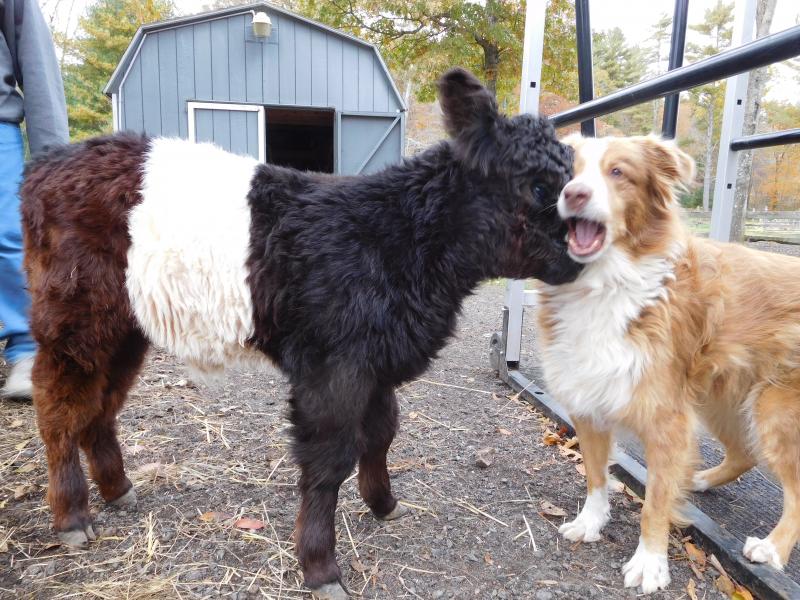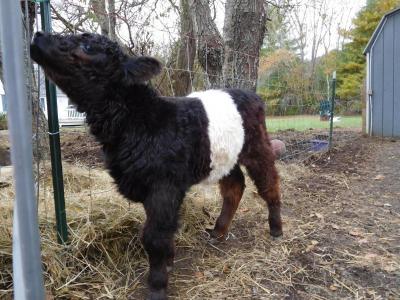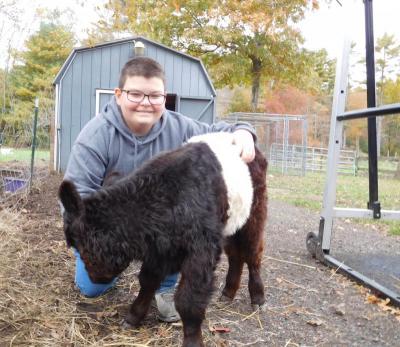A calf’s second chance comes in Rochester
ROCHESTER — When Melissa Weigel heard about a Belted Galloway calf in New Hampshire that was rejected by its mother she immediately drove up to take the 36-hour-old calf in.
The family named the 30 pound calf Maize, and from the beginning keeping her fed and healthy has been a team effort. Melissa’s son, Owen Weigel, used the prize money that he won from showing one of the family’s three other Belted Galloways to buy Maize. Her husband, Greg Weigel, gets up at 3:30 or 4 a.m., and will bottle feed Maize, who requires a quart of milk every four to six hours, if she hears him and starts mooing.
“I grew up on a farm and always loved animals and caring for them,” said Melissa, to explain why she wanted to take the calf in, “When my friend called up about Maize, I looked at my husband and we said ‘what are we doing? But we love the Belted Galloway breed, and she is doing well now.”
Belted Galloways are a fairly rare variation on the more standard Galloway cattle that have a white stripe around their middle. The breed originated in Scotland.
Maize hasn’t always been as healthy as she is now. She has battled fevers, and sometimes required intensive nighttime care. Owen made the decision to buy the calf with the knowledge that she might not make it, and he would have lost his money.
But with the family’s efforts, Maize has doubled in size in the seven weeks since they got her. Now, she’s about the same size as the family’s Australian Shepherd, Bailey, who serves as her sometimes playmate.
Though the Weigels have other cows, and some of their cows have just given birth, they have to buy milk from Tractor Supply Co. in 30 pound bags for the seven week old calf. The family will continue feeding her for six months to a year.
It is fairly common for cows to reject their calves. The same thing happened with a calf that was just born on the Weigel’s farm, forcing them to restrain the mother to allow her calf to drink.
Whether the calf is birthed on their farm, or adopted, like Maize, caring for a calf is a long-term commitment, and at times a difficult one to keep.
“There were nights where I got no sleep,” Melissa said about caring for Maize, “but it was so worth it. I would do it again.”
















